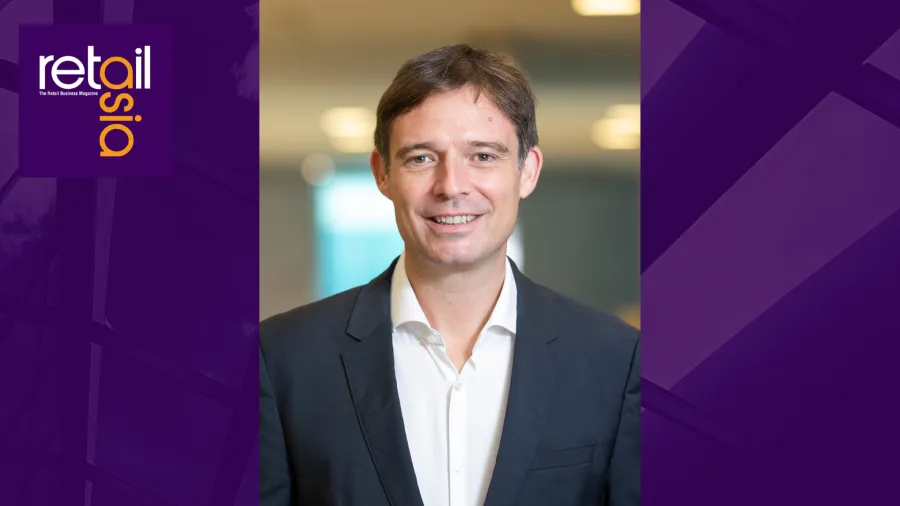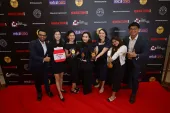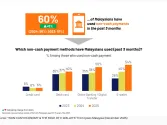
Innovations, value-adding, and cost reduction in retail companies
A healthy balance or a calculated risk can make or break a company’s success, says EY’s Olivier Gergele.
Olivier Gergele’s 20+ years of experience in consulting, consumer and retail industry, and deep knowledge regarding developed and developing markets have made him an EY-Parthenon partner and EY ASEAN Consumer Products & Retail Leader with vast operational and consulting experience in the consumer products and retail sector globally
He covers projects on growth strategies, innovation, value creation, go-to-market, sales and marketing effectiveness, profitability improvement, cost and complexity reduction, change management and large-scale transformation, and assists clients in engagements such as strategy development, operating model and organisation review, go-to-market definition, value creation, and large-scale commercial and cost transformation programs.
Helping businesses rethink their strategy for meeting ever-evolving consumer needs, Retail Asia sat down with him to trade insights on his upcoming role as a judge at the Retail Asia Awards 2022, emphasising how companies should read trends and maximise profits without sacrificing their quality and credibility.
Can you tell us about your experiences as a Consumer Products & Retail Leader? What are the most important experiences that have shaped your career?
Olivier is the EY Asean Consumer Products & Retail Leader based in Singapore. He also leads the EY-Parthenon Consumer Products & Retail practice across Asia-Pacific. With vast operational and consulting experience in the consumer products and retail sector globally and across Asia, his experience spans strategy development, operating model and organisation review, go-to-market definition, value creation, and large-scale commercial and cost transformation programs. Olivier credits his experiences of working across multiple geographies and cultures as key factors to have shaped his career. He holds an MBA from Warwick Business School in the UK.
What trends, products or innovations do you see as having the most lasting impact?
According to our recent EY Future Consumer Index survey (FCI), approximately 40% of consumers will now shop online for products previously bought in stores. In that context, companies are increasingly looking at how they can provide a seamless and curated experience across the traditional offline and emerging online channels. Importantly, we are also seeing an emergence of new business models with non-traditional competitors disrupting the consumer sector. This has given rise to the creation of digital ecosystems, with businesses across different sectors coming together to collectively fulfil consumer needs to provide an integrated experience. Companies need to closely look at the role of digital ecosystems in the consumer life journey and how they can build dynamic ecosystems that can create long-term value and comparative advantage.
How can companies add value to their existing products? What advice can you give companies looking to improve their profitability?
As consumer behaviour is constantly evolving, companies are required to continually reimagine how to best serve their consumers. According to the FCI survey, approximately 65% of consumers today are willing to share personal data for a more tailored experience and approximately 40%are intending to spend more on experiences. Consumers want their life to be easier and more fulfilling.
In light of the future consumers’ needs, retailer value propositions must evolve. They can position themselves to become the following:
i.) “a time saver” by focusing on speed, convenience and efficiency,
ii.) ”a problem solver” by creating personalised solutions, and
iii.) “an experience creator” by focusing on providing enriching experiences in and outside the store.
How should companies approach cost reduction without sacrificing product quality? Is this possible?
Cost reduction can be approached from multiple angles. Products and services can be optimised by focusing on what really matters for the consumer and deprioritising the rest. This requires organisations to have clarity on the key consumer acceptance drivers for their particular consumer segment. Significant value can also be unlocked through automation and driving the efficiency of the backend. Leading players are also looking to increase the value of their proposition so that premiums can be justified.
As a judge in the Retail Asia Awards, what projects or innovations are you expecting to find amongst the entries? What are your criteria for judging?
I am looking forward to seeing projects that are helping to deliver a seamless and curated experience across offline and online channels, as well as projects that are looking at how to further engage consumers over and above the typical value proposition



















 Advertise
Advertise







